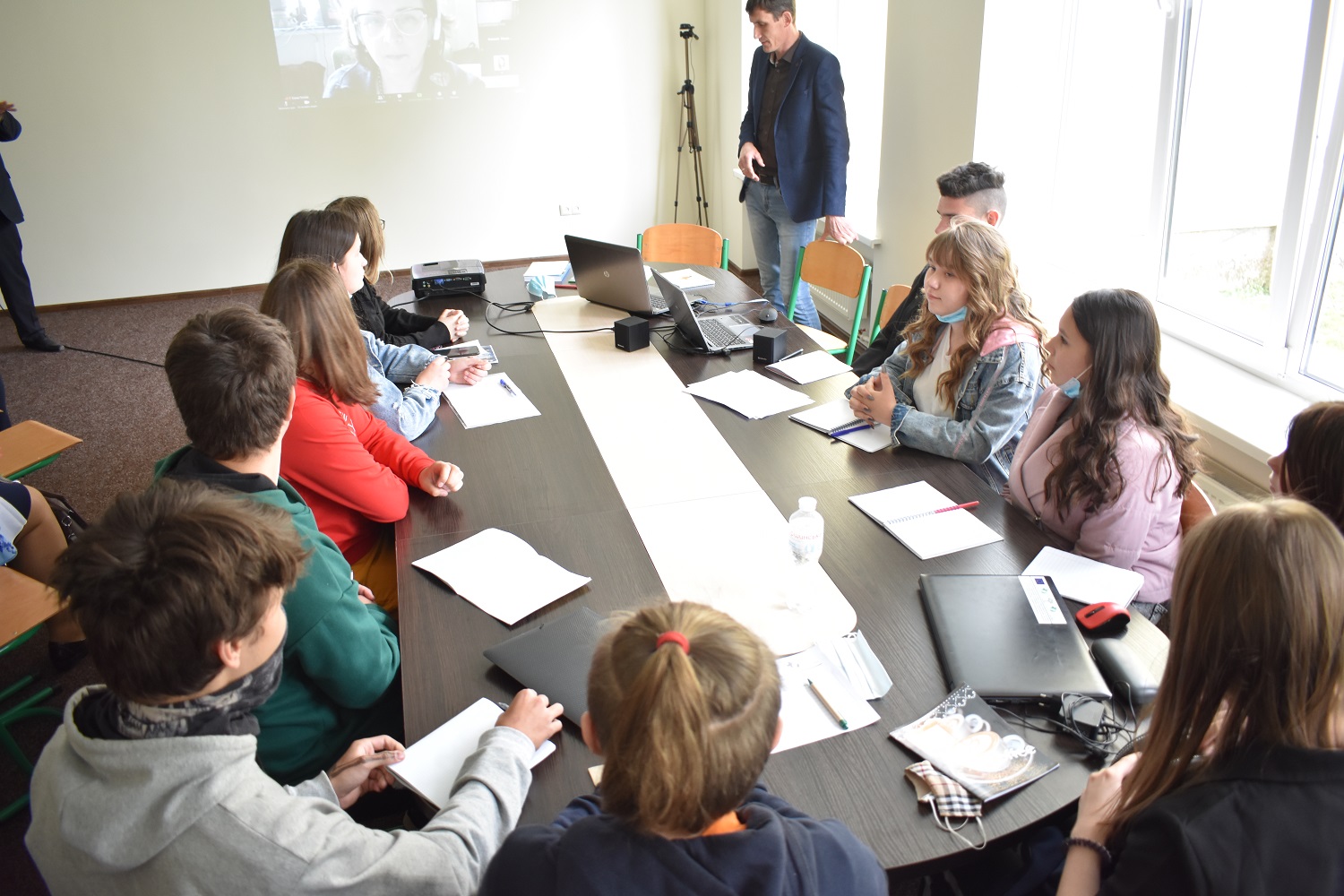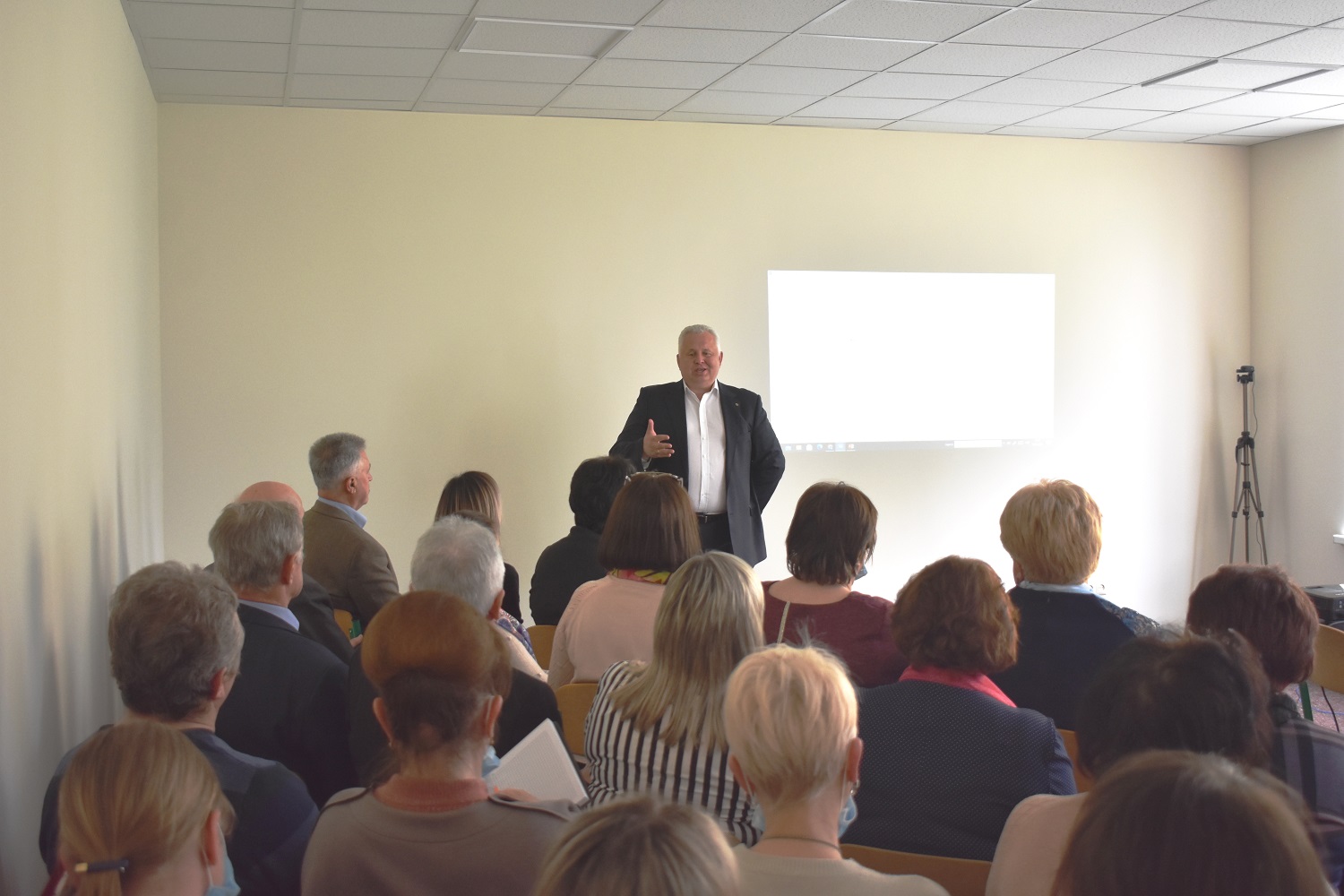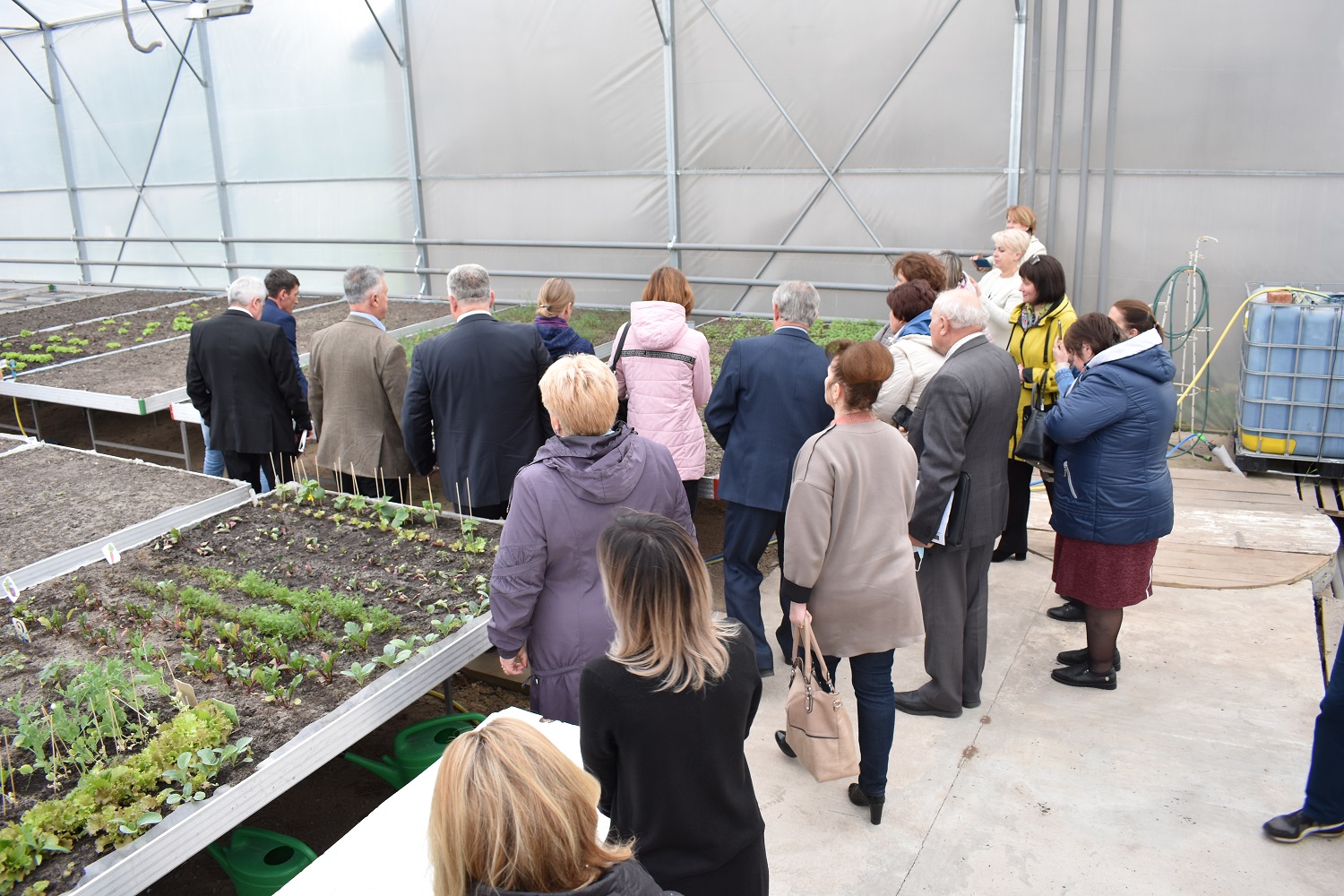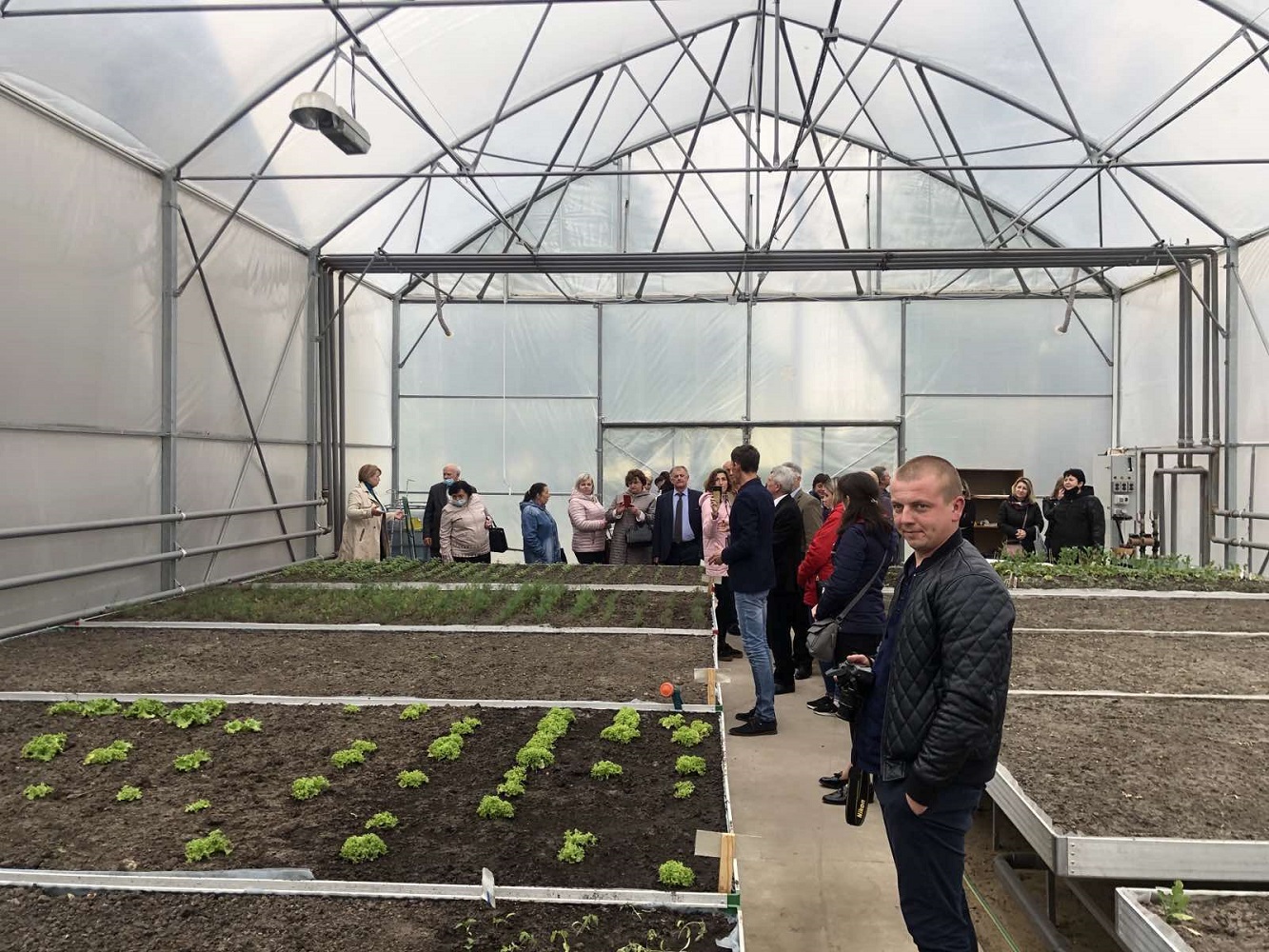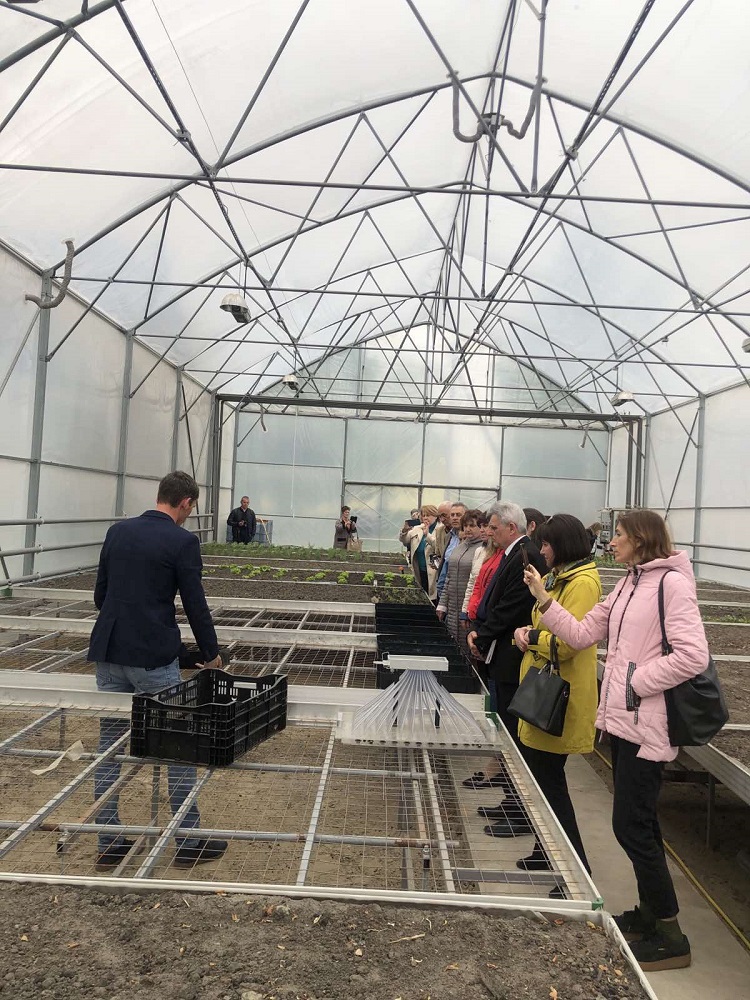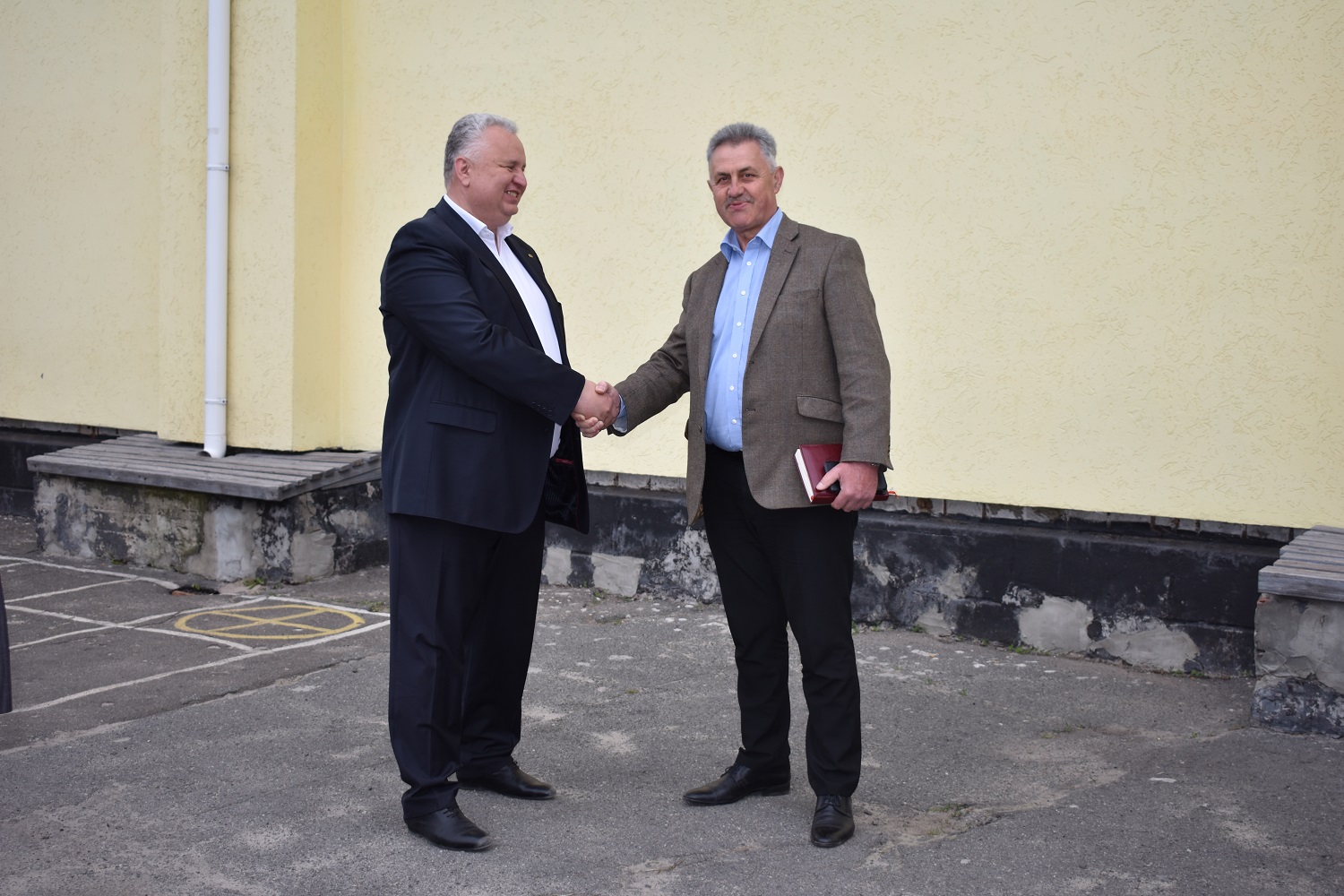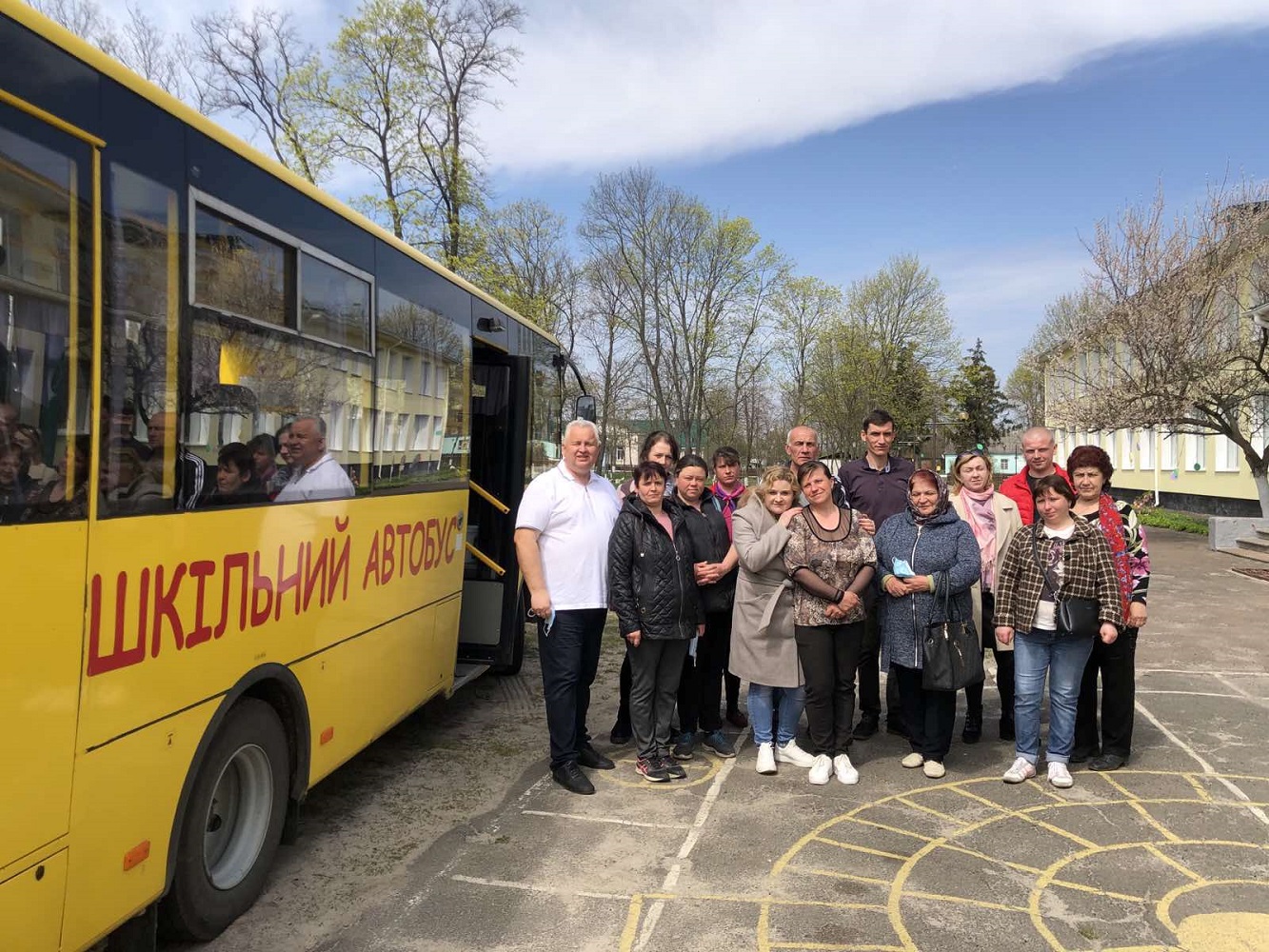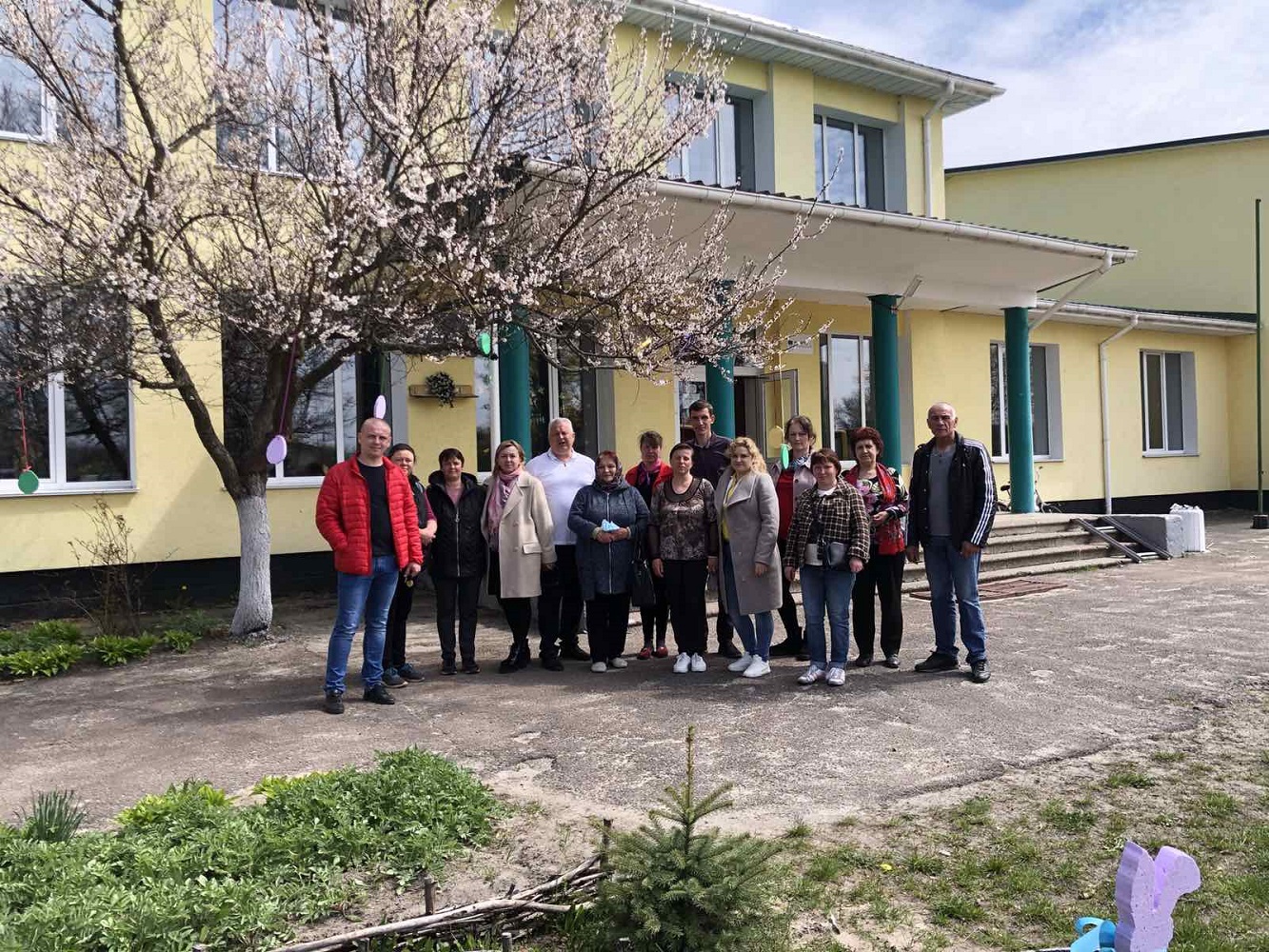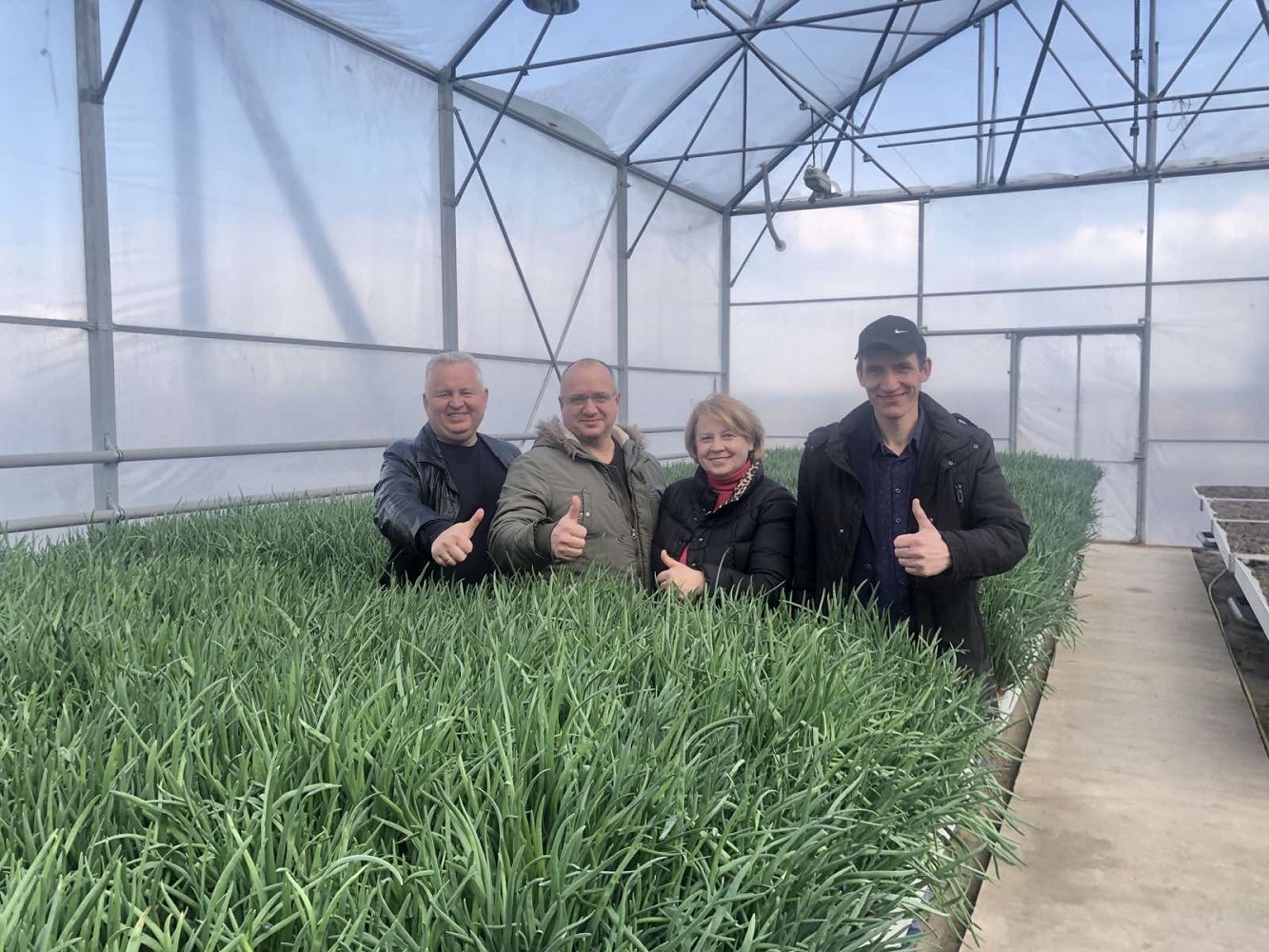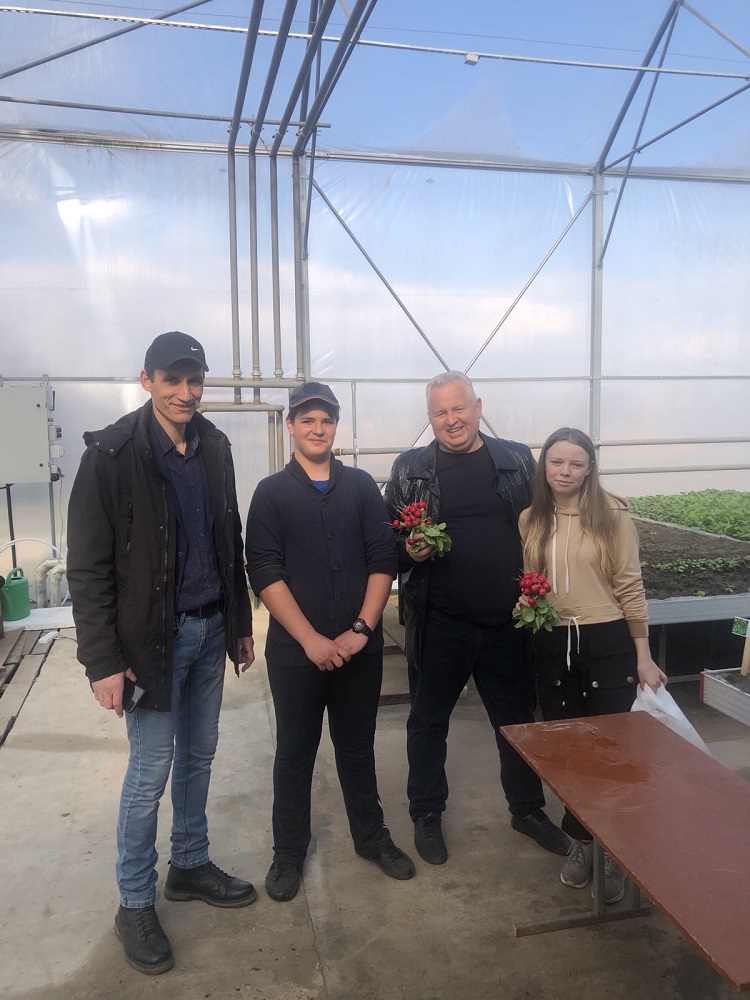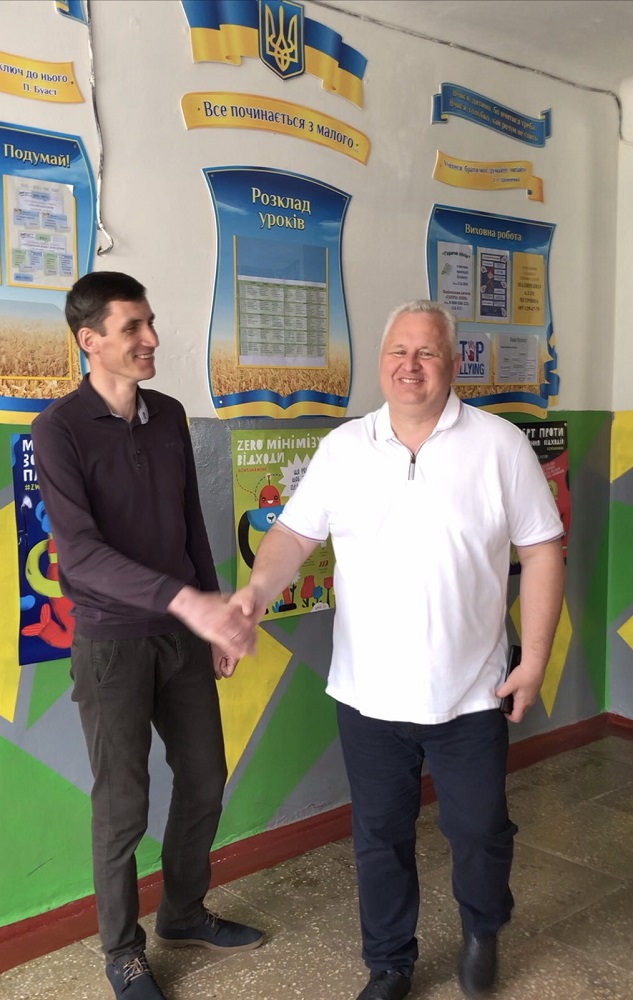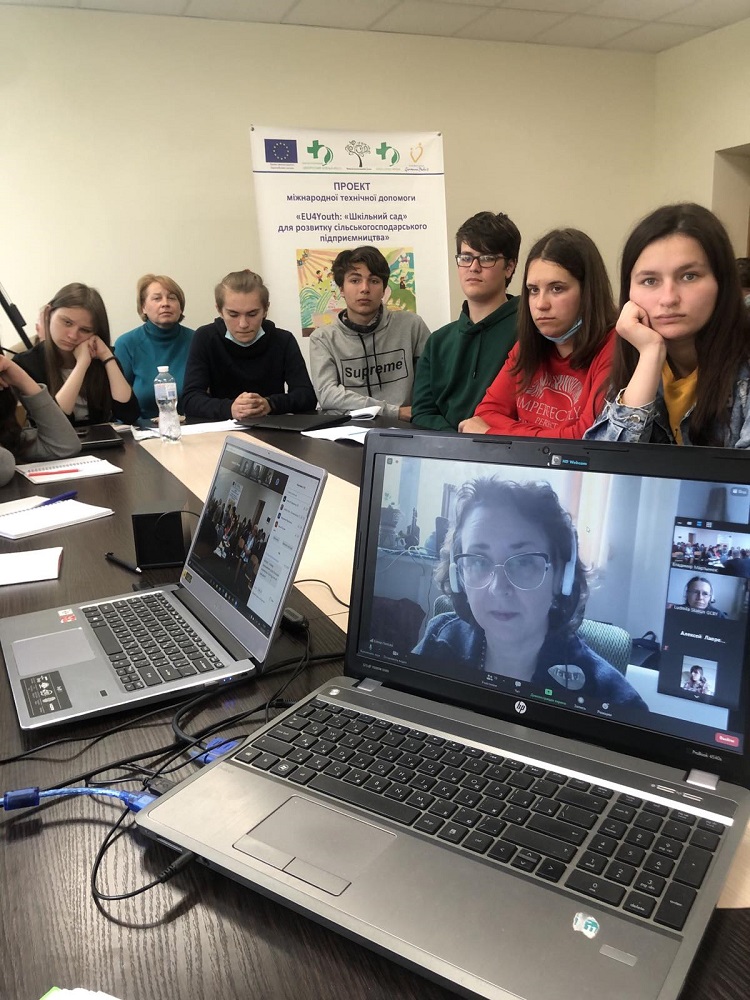Rural school is an open educational platform within the "School Garden" project

In order to increase the organizational capacity of school business incubators, as well as to develop skills and disseminate knowledge among student youth and teachers, classes, practical trainings and online lectures in the field of modern organic agriculture and entrepreneurship are being actively carried out. The first study tours of groups from neighboring district educational institutions are organized to visually learn more about the processes of growing organic products, the technologies used and the difficulties that schools face while implementing promising business ideas and startups that include a social component in their activities.
On April 22-23, under the School Garden project with the support of the Green Cross Belarus and Green Cross Ukraine, online classes were held at the Vyshevitsky Lyceum (Zhytomyr region), in which teachers and schoolchildren from Belarus and Ukraine took part. In total - 99 people, including 71 students from 15 schools.
Interactive learning provides an opportunity to share experiences and provide tools which young people can use their skills and knowledge in real life.
The first online lesson was held on the topic: "Using Telegram tools to promote goods and services on the Internet", moderator - Oleksiy Lavrenchuk. Participants learned what bots are and how they can be used in agricultural business. For example, students of the Vyshevitsky Lyceum have already begun to use this technology as a newsletter for promotion, advertising of grown products, for a search and as point of sale, etc.
The topic of the next lesson was “Analysis of Agricultural Product Markets”. Vasily Savchenko, Candidate of Technical Sciences, Representative of Viemose DGS A/S Denmark in the CIS countries and Serhiy Minenko, Director of DGS-Ukraine, Candidate of Technical Sciences spoke to the participants. The aim of this event was to present school social entrepreneurship in action. Participants of the online lesson learned more new information about the correct conduct of market analysis to clearly understand the path on which to move a business. Good market analysis allows interesting investors, bypassing pitfalls in your path and, most importantly, attracting customers. They also talked about greenhouses, their operation and advantages. As we know, climate change has been observed for a long time. The summer period is noticeably reduced due to cold, rains and lack of solar heat, while winters, on the contrary, are quite severe and long. Therefore, greenhouse equipment is the right approach, which contributes to solving problems for growing both berries and vegetables.
In continuation of the training program and conducting online classes, on May 13-14, a series of lessons in economics was launched for schoolchildren. A webinar was organized with the participation of Belarusian and Ukrainian schools. In total 208 students and teachers from 18 schools took part. Directors from 26 schools of the Zhytomyr region were also present to learn more about the School Garden project and the possibilities of business incubators. The Chairman of the GCU Board, Yuriy Sapiga, in his speech thanked the Green Cross Belarus and the European Union for financial assistance and coordination, and also drew attention to the uniqueness of the project, its development prospects not only in three regions, but throughout Ukraine in the future.
Director of the Vyshevitsky Lyceum Volodymyr Martynyuk gave a lesson in economics, "The experience of drawing up a business plan." The participants got acquainted with the important stages of making a business plan and its practical implementation (based on examples of growing and selling flowers, radishes). Vyshevitsky Lyceum plans to prepare and sell dried herbs, medicinal herbs, herbal teas and humus production to improve the technological process of the greenhouse.
Thanks to the School Garden project, work in the greenhouse and practical training, the students of the Vyshevitsky Lyceum are already making successful attempts to conduct an advertising and marketing campaign, an entrepreneurial page has been created on Facebook and Telegram channel of the “Beta Entrepreneurs”, the grown products are sold and the first profit is gained.
Volodymyr Martynyuk noted that any school project is a team work, starting from drawing up a business plan to organizing people. However, there is still a lack of knowledge. Much is planned to be implemented thanks to information materials and training provided by the Green Cross Belarus. Cooperation with higher educational institutions continues, it is planned to conduct master classes in floral design and others.
As part of the lesson "Using Telegram tools to promote products and services", the participants were able to once again step by step study the algorithm for creating bots in Telegram in order to further inform the target audience about the products grown on the basis of school business incubators, to sell products and advertise services, including the rental of greenhouse tables. Telegram can also be used as a means to find potential sponsors and obtain the necessary agricultural equipment for the use of the school. The lecture and practical part of the lesson was conducted by Oleksiy Lavrenchuk, Deputy Director of the Vyshevitsky Lyceum, who shared his best practices and emphasized that various social networks can be used to promote the school incubator and the School Garden project itself, since each attracts its own age category of interested buyers. The moderator of the lesson Elena Popova (Green Cross Belarus) noted that the information received during the training is very important, since now we need to utilize the actual and modern sales mechanisms. The speed and format of information submission have already changed and will change in the future. Therefore, the schools participating in the School Garden project need to respond quickly and introduce new technologies.
For its part, Green Cross Ukraine, together with partners, continues to contribute to the creation of sufficient technical and methodological potential for educational and practical training of young people in promising organic agriculture. The main thing is that the interest of rural youth in the School Garden project is growing, the reputation and leadership of educational institutions in the regions are increasing.
GCU









